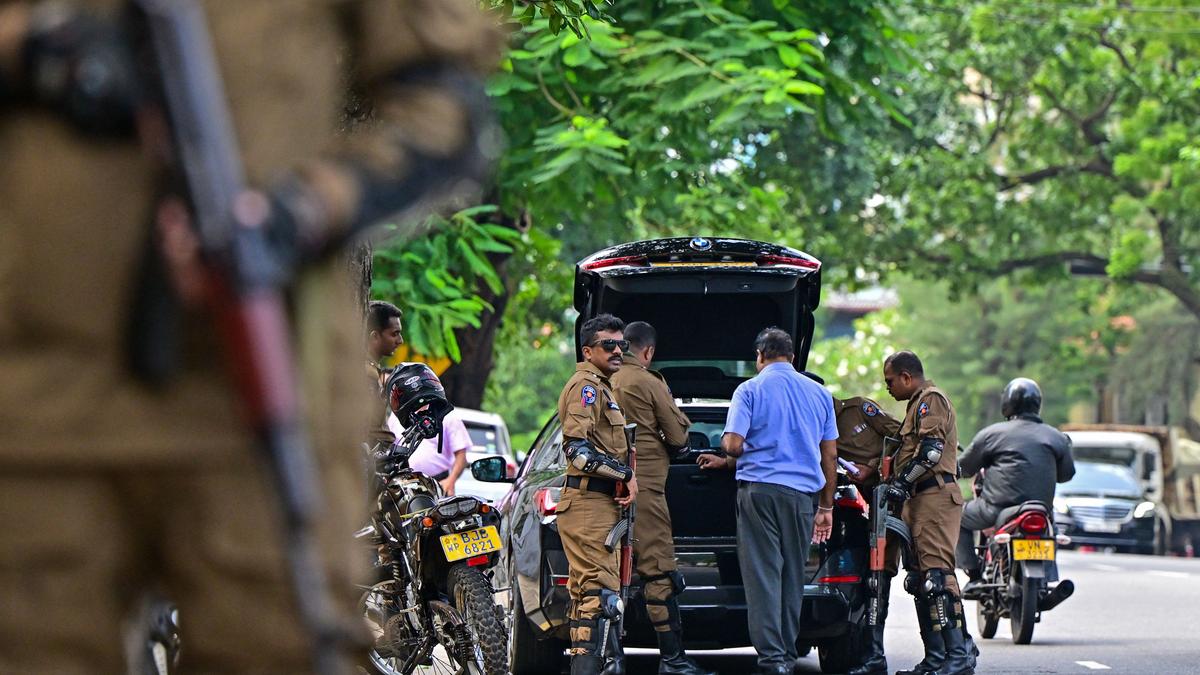
Sri Lankan polls: economy takes centre stage | Explained
The Hindu
Sri Lanka's upcoming presidential election focuses on economic recovery after a financial crisis, with citizens facing ongoing hardships.
The story so far: Sri Lanka’s presidential election will be held on September 21. Since it is the first time that citizens will have a chance to elect their leader after the unprecedented financial meltdown in 2022, their economic concerns are the chief poll issue. This marks a departure from the island nation’s last few elections that were dominated by promises of “eradicating terrorism” (the country’s three decade-long civil war ended in 2009), and pledges of delivering “good governance”, or “national security”. All main contenders running for president this time have promised to fix the country’s broken economy, offering mildly different versions of policy outlines tethered to an ongoing International Monetary Fund (IMF) programme.
Sri Lanka’s classic twin deficit problem dramatically escalated when President Gotabaya Rajapaksa resorted to rash policy decisions, including significant tax cuts, an abrupt ban on chemical fertilizers, and a failure to devise a plan to meet debt repayment deadlines, especially after foreign reserves dwindled in the wake of the pandemic and questionable policy. In April 2022, Sri Lanka announced it would default on its foreign loans as the “last resort”. As the imports-reliant country ran out of dollars, essential supplies were severely hit. People were forced to contend with long queues for fuel and gas, shortage of food and medicines and prolonged power cuts. With no solution in sight, citizens took to the streets. The agitations soon grew into a formidable mass uprising and evicted Mr. Gotabaya from presidency. Soon after, President Ranil Wickremesinghe was elected to the country’s top office through a parliamentary vote.
Although the outgoing government of Mr. Gotabaya was considering seeking IMF assistance, it was only in March 2023 that the agreement for a $3-billion Extended Fund Facility (EFF) was finalised by his successor Mr. Wickremesinghe. The EFF sought to “restore Sri Lanka’s macroeconomic stability and debt sustainability, safeguard financial stability, and step up structural reforms to unlock the country’s growth potential”. Although Sri Lanka had obtained IMF assistance 16 times earlier, this was its first agreement after defaulting on its loans. The Fund underscored the need for a “comprehensive anti-corruption reform agenda”. In order to meet the targets set, the government undertook various policy measures.
It restored the taxes that were cut by the previous administration and increased the Value Added Tax (VAT) to 18% from January 2024. It went for market-pricing of fuel and energy, and agreed to “reform” state-owned enterprises, best known for their huge recurrent losses. Detractors read that as an alarm bell for a fire sale of strategic assets, but the government’s plans have yet to transform into actual deals. The Wickremesinghe government also passed at least 42 legislations for the country’s “economic transformation”.
In June this year, Sri Lanka sealed an agreement with the Official Creditor Committee (OCC), to restructure the debt owed to its bilateral lenders including India, and signed a separate agreement with China for debt treatment. The OCC is a platform comprising 17 countries including India and members of the Paris Club such as Japan, that Sri Lanka has borrowed from. It was formed in May 2023 to simplify Sri Lanka’s debt negotiations following its default. With the OCC, Sri Lanka reached a restructuring agreement for $5.8 billion of its bilateral loans.
Sri Lanka on September 19, 2024 said it reached agreements in principle to restructure approximately $14.2 billion of sovereign debt with the holders of its International Sovereign Bonds. On the domestic debt front, Sri Lanka’s effort at restructuring has sought to protect local banks, while transferring the burden to superannuation funds, including the Employees’ Provident Fund. The move, which diminishes the rate of return on investments and the final value of workers’ savings, drew huge flak and has been challenged in the Supreme Court.
Over the last year, authorities have been highlighting incremental gains towards macroeconomic stability.













